In this article
View 4 More +Amoxicillin is an antibiotic that is prescribed to cats for various infections (from skin infections to UTIs and pneumonia). It has a broad spectrum of action against a very large range of gram-positive bacteria, including Streptococcus and some strains of Staphylococcus. It’s not considered effective against most gram-negative bacteria.
This medicine is only available with a prescription. Amoxicillin should not be used in combination with certain drugs and should be avoided in cats that are allergic to it. It is usually tolerated well by most cats; however, some cats might experience side effects, such as diarrhea or vomiting. In rare instances, more severe reactions might occur.

What Is Amoxicillin?
Amoxicillin is a beta-lactam antibiotic that is effective against several species of gram-positive bacteria and a few species of gram-negative bacteria, such as:
- Staphylococcus spp. (some strains)
- Streptococcus spp.
- Proteus mirabilis
- Pasteurella multocida
Due to its relatively low efficacy against gram-negative bacteria, it is sometimes combined with other medications to achieve a broader spectrum of antimicrobial activity.
Amoxicillin for cats is used for various bacterial infections, such as respiratory, skin, gastrointestinal, or urinary tract infections. Amoxicillin is available under different brand names, such as:
- Amoxil®
- Amoxi-Tabs®
- Amoxi-Drop®
- Bimox®
- Moxatag®
- Novamoxin®
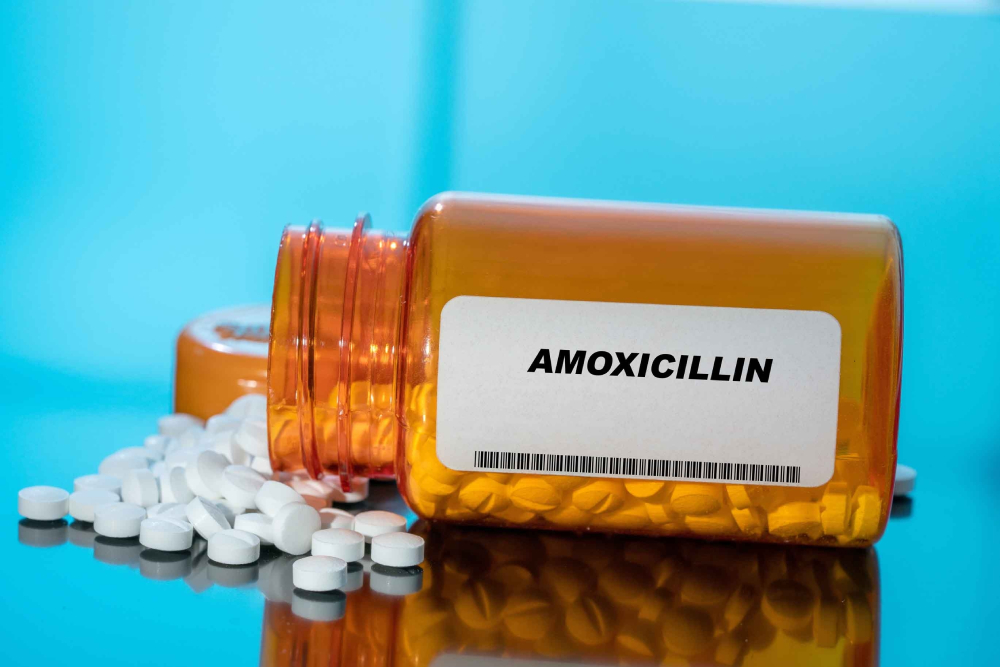
How Is Amoxicillin Given?
Never attempt to self-prescribe Amoxicillin for your cat. You should only administer this drug for your cat at a veterinarian’s discretion and instructions.
Amoxicillin is available in the form of tablets, capsules, powder for oral suspension, or drops.
The medicine should be administered for the entire period recommended by the veterinarian. You should not stop the administration unless gastrointestinal disorders, lethargy, breathing with difficulty, or swelling of the face occur, and in these situations, you must contact the vet.
Once you start giving amoxicillin to your cat with the vet’s instruction, you should see improvements within a few days (depending on your cat’s response to the treatment).
Amoxicillin is used for a number of different types of ailments and diseases (ranging from skin abscesses to some urinary tract infections). It is also sometimes prescribed in combination with other drugs, and therefore, there is no one dose that works for all cats. The veterinarian will determine a dose and duration of treatment based on your cat’s medical needs.
Amoxicillin is available in the form of tablets, capsules, powder for oral suspension, or drops. Although it can be administered with or without food, it is recommended to give it to your pet after a meal because it can disturb the digestive tract, and vomiting may occur.
The medicine should be administered for the entire period recommended by the veterinarian. Do not stop the administration unless gastrointestinal disorders, lethargy, breathing with difficulty, or swelling of the face occur. In these situations, you must contact the vet immediately.
The liquid forms should be measured carefully and shaken well before administration. Once you start giving amoxicillin to your cat, you should see improvements within a few days. Depending on the product or vet’s recommendations, the usual dose of amoxicillin for cats is 5–10 mg/lb once or twice a day.
In the case of skin abscesses, amoxicillin will be administered for 5–7 days or 2 days after all clinical signs have disappeared. In the case of urinary infections, treatment with amoxicillin lasts 10–14 days on average, but you should not administer it for more than 30 days.
If you are concerned about the health and well-being of your pet, seek veterinary advice for the best course of action.
If you need to speak with a vet but can't get to one, head over to PangoVet. It's an online service where you can talk to a vet online and get the advice you need for your pet — all at an affordable price!


What Happens if You Miss a Dose?
In case you missed a dose, do not give your cat two doses at once. Wait until the next scheduled dose if you are closer to that, or give your cat the medicine when you remember and then return to their usual dosing schedule.
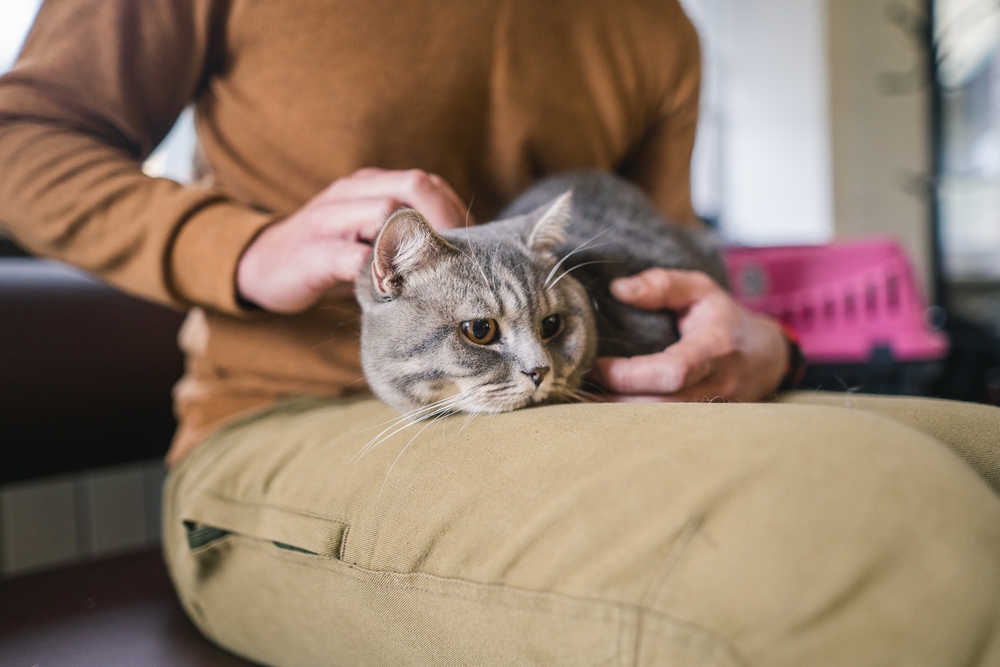
Potential Side Effects of Amoxicillin
Like any other drug, amoxicillin is not without potential side effects.
- Vomiting
- Decreased appetite
- Lethargy
- Diarrhea
- Rash
- Excessive scratching
- Breathing difficulties
- Fever
- Swelling of the face
- Wobbly walking (incoordination)
- Prolonged lack of appetite
As a general rule, if you think your cat is displaying adverse signs to a medication, consult a veterinarian promptly to assess whether adjustments or modifications in their treatment plan are necessary.

Frequently Asked Questions (FAQ)
Are There Any Risk Factors for Amoxicillin in Cats?
The biggest risk for Amoxicillin use in cats is self-prescribing it to your cat without a veterinarian’s input.
How much Amoxicillin your cat needs will be entirely up to the vet. Vets have to take caution when prescribing amoxicillin for pregnant or lactating cats and in those with liver or kidney diseases. Also, the vet would not prescribe this antibiotic if your cat is allergic to amoxicillin or other penicillins, beta-lactams, or cephalosporins.
Can I Give Human Amoxicillin to My Cat?
Even if the ingredients used are similar for humans and animals, veterinary amoxicillin prescribed by a veterinarian is the only choice for your cat. Amoxicillin for human use risks exposing your cat to toxic substances, such as certain chemical preservatives or flavors. Drugs made for human consumption should never be offered to pets; they often have completely different concentrations when compared to those made for your cat, and therefore can be extremely dangerous for your pet.
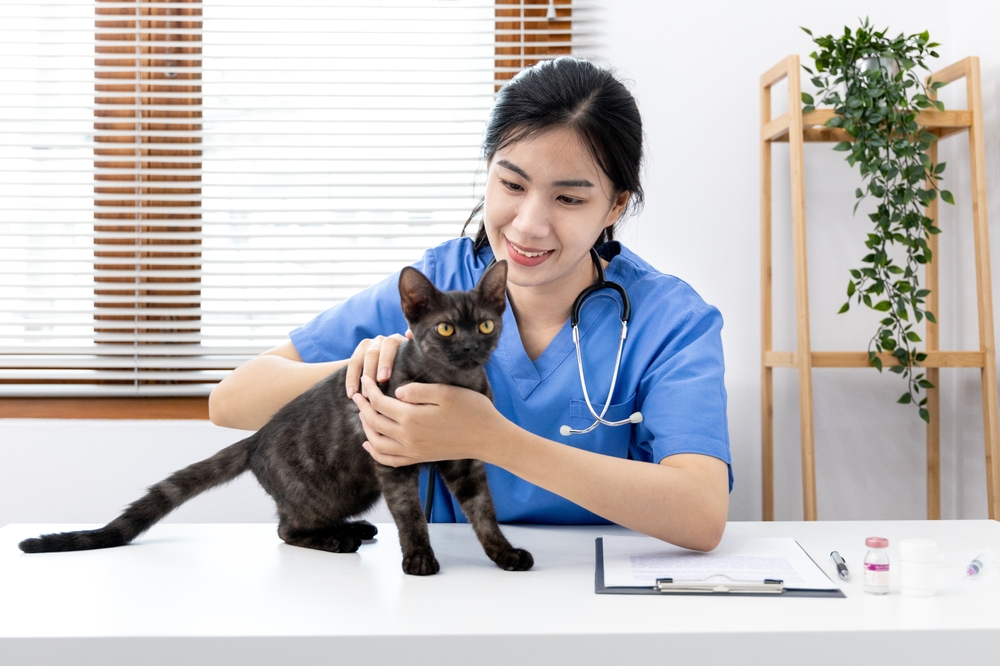
Does Amoxicillin Have Any Drug Interactions?
If your cat is taking any other medications, vitamins, herbal medicines, or supplements, it is recommended to notify the veterinarian during your pet’s veterinary visit.

Conclusion
Amoxicillin is an antibiotic with a relatively narrow spectrum of action that is prescribed for skin, gastrointestinal, respiratory, or urinary infections of mostly gram-positive bacteria. It is often combined with other drugs for broader coverage in some cases.
Though rare, amoxicillin for cats can cause adverse reactions, in such cases, you should promptly seek veterinary care for your pet. Above all, it is important to never self-prescribe or self-medicate an antibiotic for your pet.
Featured Image Credit: Sonis Photography, Shutterstock
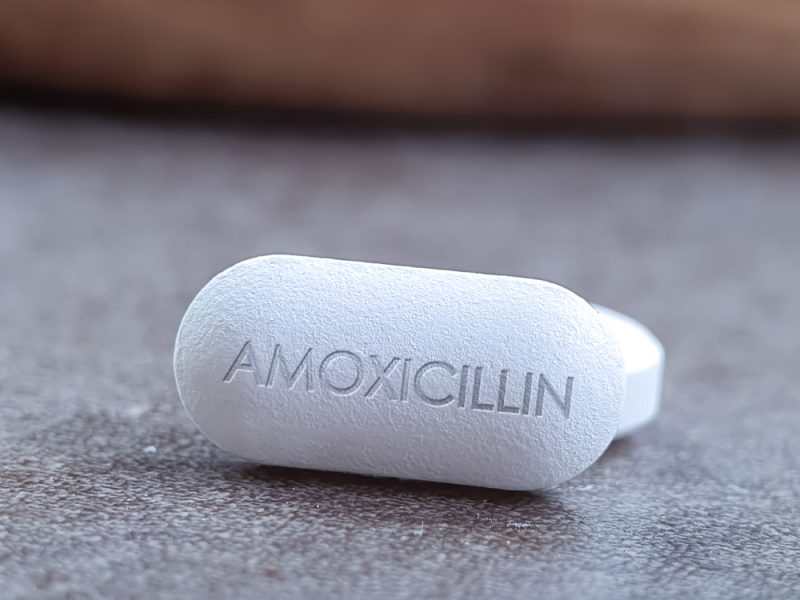

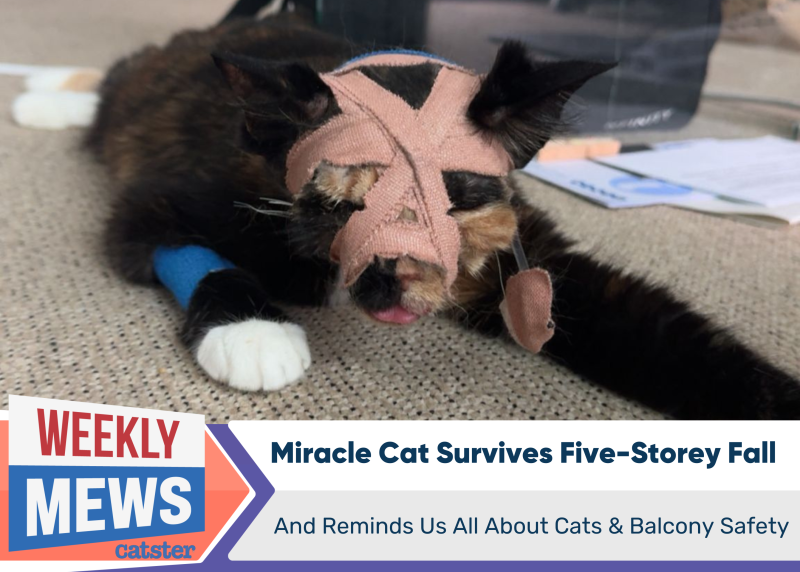

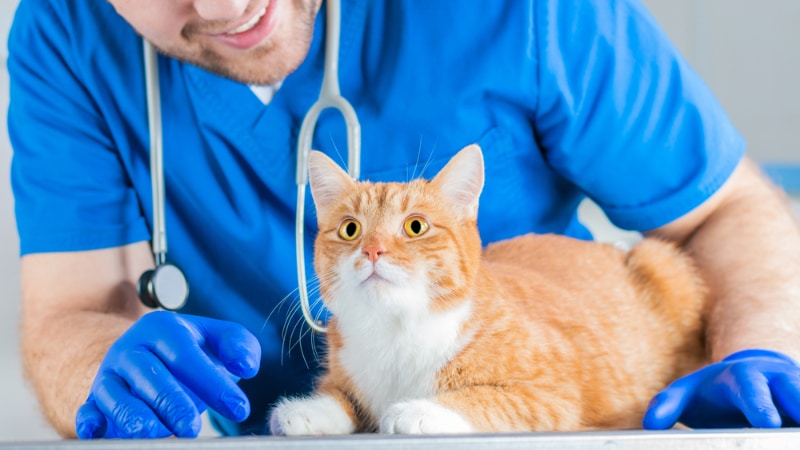
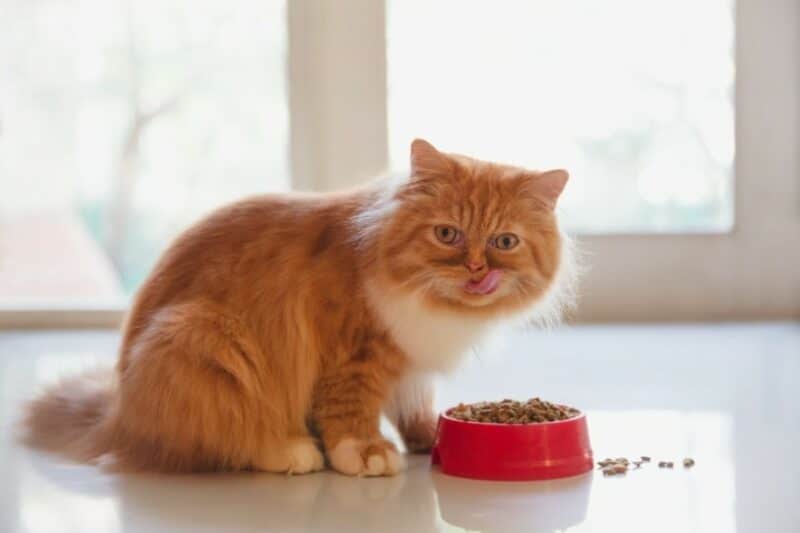
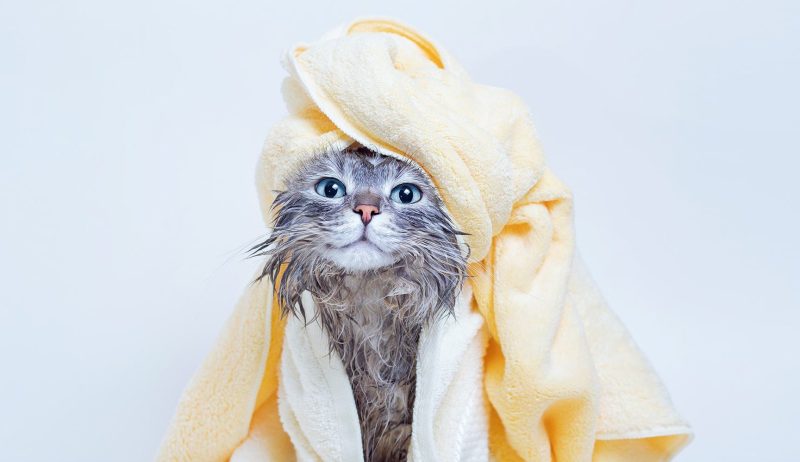
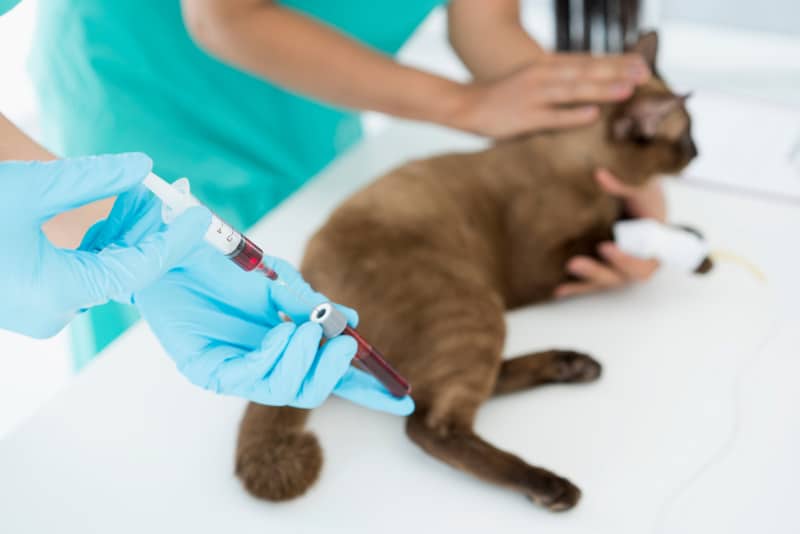

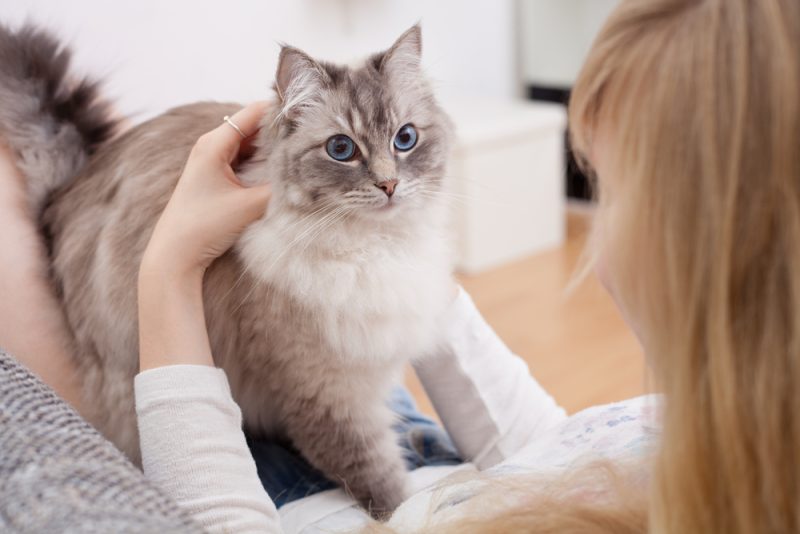
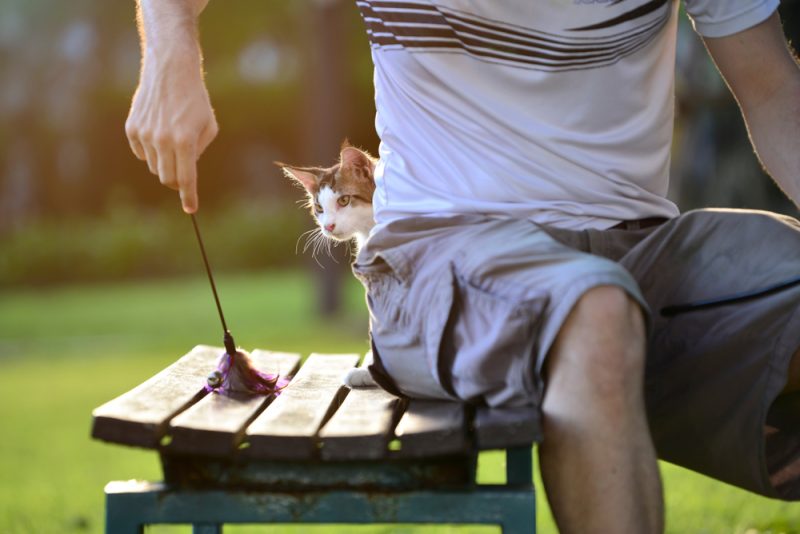


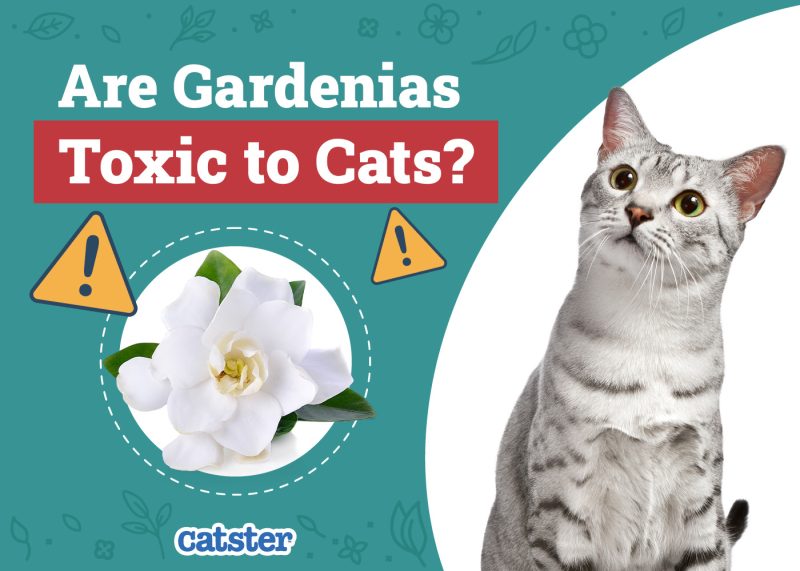
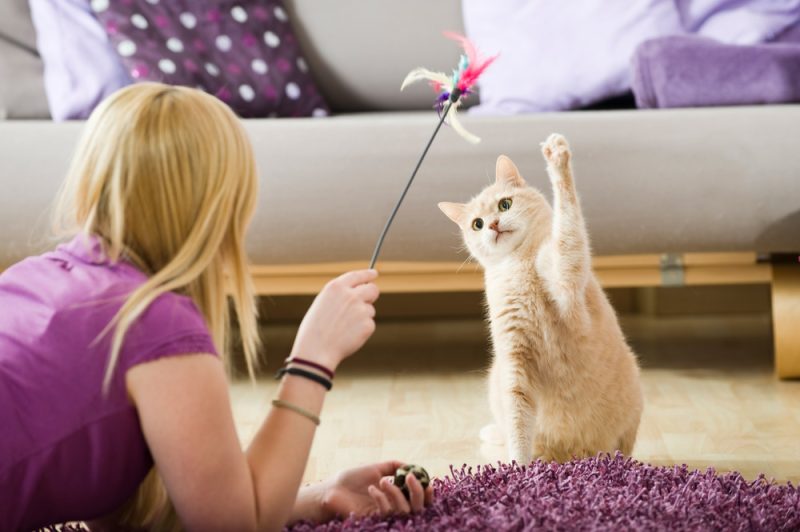
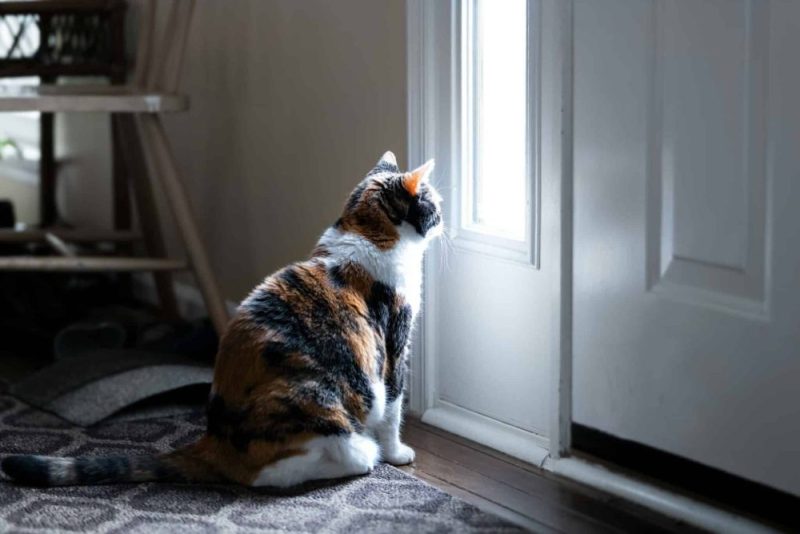
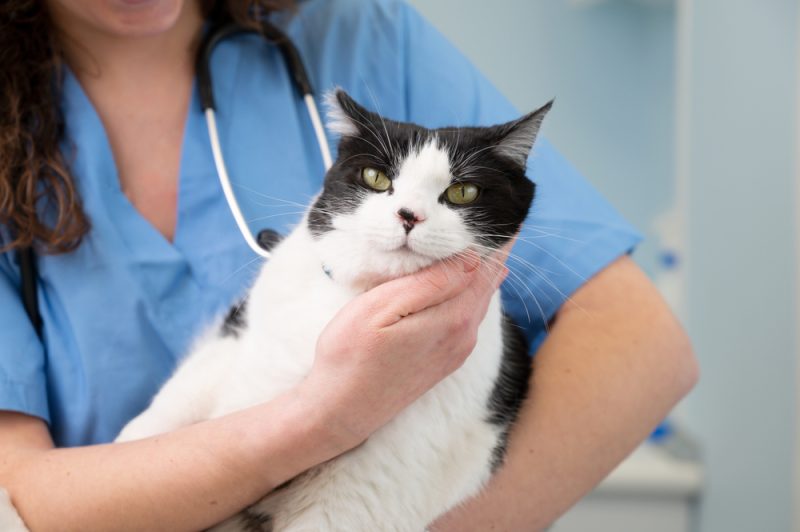
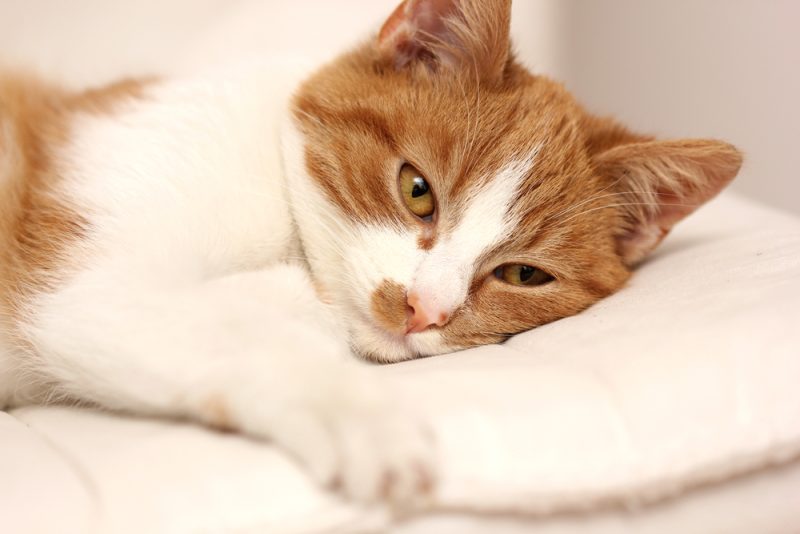



4 Responses
my cat has very bad breath. He eats well, but now his chin is swollen. I noticed he has also has been breathing with his mouth open, and he drools sometimes. I have no money for a vet right now! But I have amoxicillin for cats. Will that help his mouth infection? PLEASE HELP! Thank you!
Sorry to hear about your cat‘s oral health issues, Juanita. We do not recommend that you give your cat an antibiotic medication without a doctor's examination, diagnosis, and prescription. This could make his situation worse, as what he might need is tooth extractions and a comprehensive treatment plan.
I took a really sweet stray cat in from the cold four days ago. Have never seen her before. Looks to be about 10 months of age weighs maybe 7 pounds. Has had loose stools pudding like 4 or five times a day. I gave her 1 cc of stranded a couple days ago with no improvement. She won’t use the litter box even.? I am ready to throw back into the cold as I’m retired and can’t afford a vet.
Amoxicillin for cats in the fridge. Wondering if I should try it and how much she should have? Can you advise?
Hi Dolores, please do not self-medicate this cat. The loose stools are likely due to parasites, and Amoxicillin does not work for that. Also, amoxicillin is an antibiotic, and we should never use it without a veterinarian’s prescription. This is very important to prevent the development of drug-resistant bacteria. Thanks for giving the cat an opportunity hopefully, you can find a way to get her the medical care she needs.